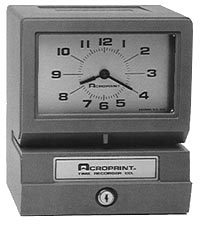 Top Class Action Lawsuits
Top Class Action Lawsuits
Tipsy TIPMs? Topping the list this week? Another defective automotive class action lawsuit—surprise, surprise. Never would have guessed, right?
This one was filed in federal court against Chrysler Group LLC. The lawsuit seeks to hold the Big Three automobile maker accountable for economic losses suffered by owners and passengers of Chrysler cars and trucks that stalled, caught fire or sustained other potentially life-endangering malfunctions due to a faulty onboard computer.
The Chrysler lawsuit alleges that Chrysler knew about and fraudulently concealed the defectiveness of its Totally Integrated Power Module—TIPM, for short. Chrysler sought as far back as 2005 to hide the magnitude of the TIPM defect from consumers and initiated only limited vehicle recalls, the complaint alleges.
Despite knowing about the defect, Chrysler continued installing faulty TIPMs in vehicles until the 2014 model year, according to the complaint filed in the U.S. District Court for the Southern District of New York.
The TIPM is an integral component of many Chrysler, Dodge and Jeep models on the road today, the device controls and distributes power to all of a vehicle’s electrical functions. Prone to sudden failure, a vehicle’s TIPM poses a serious safety issue, placing the driver and passengers at risk of harm, the complaint indicates.
A failed TIPM causes malfunctioning of airbags, headlights, brakes, horns, wipers, windows, door locks and other components that rely on electrical functions.Worse, a failed TIPM can cause a vehicle’s engine to shut down unexpectedly while driving at high speeds.
“Millions of consumers who have bought into this brand have suffered harm because of Chrysler and its faulty Totally Integrated Power Module,” the complaint alleges.
Owners of defective TIPM-equipped Chrysler vehicles suffer economic losses in part because the device is expensive to replace, costing upward of $1,000. Also, because of the sheer number of vehicles requiring a new TIPM, consumers are forced to make do without their vehicles for many days and even weeks while their vehicles sit in the shop and wait for a replacement TIPM to be shipped. Adding insult to injury, the defect caused many motorists to incur unnecessary costs to replace non-defective parts that malfunctioned because of the faulty TIPM.
Ugly Side of Beauty Biz? Sephora USA Inc. is facing a proposed discrimination class action lawsuit. Filed in New York federal court, the discrimination lawsuit claims the company deactivated thousands of Asian customers’ accounts, allegedly motivated by a racist belief that they were buying discounted beauty products in bulk and reselling them for profit.
Brought by four women of Chinese descent, the discrimination class action claims Sephora shut down Asian users’ accounts after its site crashed on November 6, due to a surge in web traffic resulting from a 20 percent-off sale promotion. According to Sephora, reselling of its products is pervasive. The company said it blocked some North American and international customer accounts for this reason.
According to the plaintiffs, the only accounts that were deactivated were those that used Chinese web domains or had names that Sephora perceived as being of Asian origin. A plaintiffs’ attorney said an investigation revealed that only users who fell into those two categories had their accounts blocked.
According to the lawsuit, the four named plaintiffs live in New York, Philadelphia, and Columbus, Ohio, and were all members of Sephora’s ‘Beauty Insider’ program. The program gives customers who spend certain amounts on the company’s products access to discounts and other promotions. The points the women accumulated by buying Sephora products, and which give access to additional discounts and special gifts, have been lost, according to the plaintiffs’ attorneys. Sephora alleges it only went ahead with the deactivations after it “identified certain entities who take advantage of promotional opportunities to purchase products in large volume on our website and resell them through other channels.”
Attorneys for the plaintiffs said that instead of deactivating accounts, Sephora could have addressed the resale issue by limiting the number of products a single customer could purchase or capping the amount of money they could spend. Sounds sensible.
The named plaintiffs seek to represent a class of Sephora customers who were part of the Beauty Insider program who either are or are perceived as being of Chinese or Asian ethnicity and had their accounts blocked or deactivated following the website crash. The potential class is expected to be in the thousands.
The case is Xiao Xiao et al., v. Sephora USA Inc. et al., case number 14-cv-9181, in the U.S. District Court for the Southern District of New York.
Top Settlements
Boston Scientific Bellwether Results… A jury has awarded $18.5 million against Boston Scientific Corp in settlement of transvaginal mesh litigation brought by four women who alleged the implanted medical device left them with nerve damage, infections and pain during sex.
The trial was heard by a federal jury in West Virginia and is the second verdict against the company over defective vaginal slings. Last week a federal jury in Florida issued a $26.7 million verdict against Boston Scientific for providing insufficient warnings about the risks of its Pinnacle mesh device.
The four women in the West Virginia case sued Boston Scientific over the defective Obtryx transvaginal sling. “In these cases, the jurors clearly understood that Boston Scientific moved too quickly in bringing its product to market, and that it used inappropriate materials while at the same time failing to warn doctors and patients about the risks involved,” said on the of the lawyers representing the plaintiffs. Each of the women will receive $1 million in punitive damages under the terms of the settlement.
The multidistrict litigation being heard in Miami, also involved four women who alleged suffering and injury after having the sling implanted. It was the first federal bellwether trial against Boston Scientific, one of seven manufacturers of pelvic mesh that face about 60,000 lawsuits across the country.
Transvaginal Mesh and Transvaginal Slings are medical devices that are surgically implanted to treat Pelvic Organ Prolapse (POP) and/or Stress Urinary Incontinence(SUI).
Hokee Dokee—Time to adjourn for the week. Have a fab weekend–See you at the bar!


